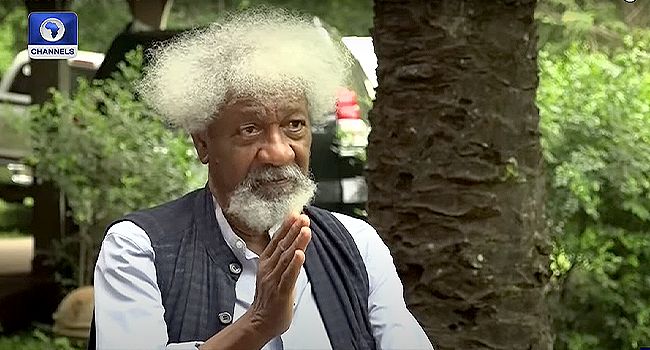Nigerian Nobel Laureate, Wole Soyinka said on Wednesday that ageing African presidents who try to cling to power by manipulating constitutions and judiciaries risk the same popular rebellions that toppled rulers in last year’s Arab Spring.

Citing as examples Zimbabwean President Robert Mugabe and Senegalese President Abdoulaye Wade, who are both well in their eighties, Soyinka criticised “sit-tight rulers” who sought to hang on in office despite being “obviously beyond their prime”.
“What is wrong with them? Why do they think that the world will not continue to turn after they’ve left office, I don’t understand,” the prolific playwright and author, who in 1986 became the first African to win the Nobel Prize for Literature, told Reuters in an interview in Pretoria.
Soyinka, 77, who sports a distinctive white Afro hairstyle, and is one of Africa’s leading intellectuals, has been an outspoken critic of dictatorships and autocratic rulers in his native Nigeria and elsewhere on the continent and in the world. While he saw differences between the Arab world and Africa, he predicted African rulers who abused their powers to stay on for years could face their own “African Spring”.
“In the end, those who refuse to bow to popular will, who continue to treat, describe and regard their own peoples as inferior to themselves or their petty clans, I’m afraid will confront the same nature of violence as we witnessed in the Arab world,” he added.
Soyinka said presidents in Africa who manipulated hand-picked constitutional courts and pliant judiciaries to extend their periods of rule often displayed the same arrogant, condescending paternalism as former colonial powers.
Mugabe, 87, has governed Zimbabwe since independence from Britain in 1980 and has defied critics at home and abroad who accuse him of using violence against rivals to stay in power.
Senegal’s Wade, 85, faces violent protests after the West African country’s Constitutional Council confirmed that he could stand for re-election for a third term, despite complaints that this breached rules setting a two-term limit.
“What is Abdoulaye Wade in Senegal wanting to do continuing with another term in office? By now he should be an elder statesman whom we could come and visit in retirement to discuss the future of Africa,” said Soyinka.




